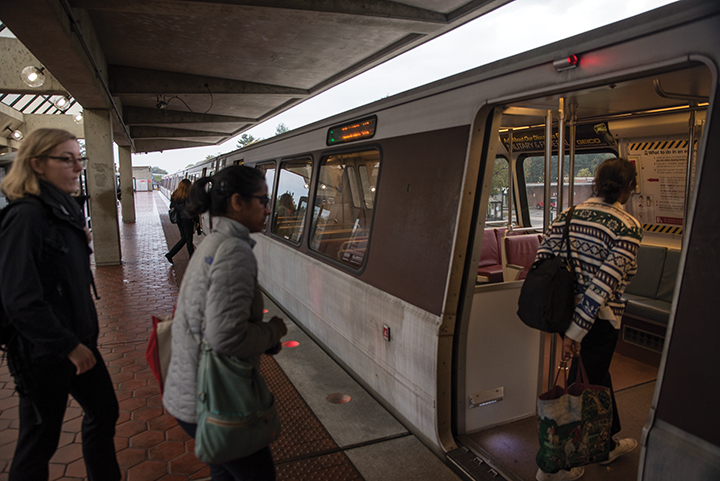Views expressed in opinion columns are the author’s own.
For prospective students, one of the University of Maryland’s major draws is our close proximity to Washington, D.C. The city is a hub of culture and politics, and attending college just outside the nation’s capital is appealing for a variety of reasons. Internship and job opportunities, access to museums, shopping outlets and concert venues make Washington, D.C., an alluring attraction for students. There’s only one problem: The Metro is too expensive.
The Washington Metrorail bases fares on total distance traveled, rather than the flat fare system used by New York and other cities. The Metro also changes fare prices during “peak” hours.
While a weekday trip from College Park to the Gallery Place Metro Station in Washington, D.C., will cost only $3.35, the cost to come back during non-peak hours is the same, making a single trip into the city $6.70. That’s not terrible, but also not affordable on a daily or semi-regular basis. Furthermore, that price doesn’t account for additional Metro travel once within the city, or higher prices during peak times. The stereotype of the broke college kid is very real, and many students at this university are unable to regularly pay that amount in fares. So say goodbye to those alluring internship opportunities in Washington, D.C.
[Read more: UMD SGA launches transportation stipend for students with off-campus internships]
Earlier this year, the RHA Senate passed a resolution supporting a new student fee that would guarantee unlimited Metro use for all on-campus students. While some pushed back against the proposed fee increase, unlimited Metro access would have been a game-changer for this university. Students could have easily accepted internships in Washington, D.C., even unpaid ones, without worrying about cost of travel into the city. Cost would no longer prevent students from visiting the monuments, museums and Mall.
I wanted that resolution — and that unlimited access — very, very badly. Unfortunately, the SGA didn’t approve the program, finding the proposal too expensive for students.
While unlimited Metro access might not be in the near future for students at this university, there is one last vestige of hope: Reps. Jamie Raskin and Anthony Brown just proposed legislation to make Metro cheaper and safer. The bill would pilot a fare program similar to the one in New York City, testing a flat-fare rate of $2.50.
[Read more: Maryland lawmakers propose bill to make the Metro safer and more affordable]
If we can’t get unlimited, student fee-funded Metro access, this bill represents the next best thing. Surprisingly, I haven’t heard much talk among students about this bill and how it would affect Metro affordability. As a community located so close to Washington, D.C., we ought to be talking about this — and voicing our support for a more reasonably priced and accessible Metro.
Caitlin McCann is a sophomore communication major. She can be reached at caitlinmccann32@gmail.com.



